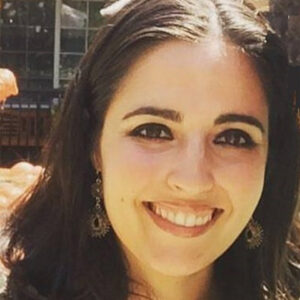Transforming Prayer in the Third Third of Life
“When you pray, don’t pour out a flood of empty words, as the Gentiles do. They think that by saying many words they’ll be heard. Don’t be like them, because your Father knows what you need before you ask.” Matthew 6:7-8
For years, those researching health, well-being and aging often assumed church attendance or engaging in prayer alone, often measured in terms of frequency, were in themselves beneficial to one’s health. However, perhaps not surprising to many believers, it has been found that how one experiences these plays a more crucial role in promoting health than mere frequency.[1] Developing a relationship with God and engaging in the patterns of thought of those who came before us (tradition) provide meaning to our lives. Prayerful experiences help us in “constructing a meaningful and purposeful worldview.”[2]
Christian prayer is not about appealing to a magic force to grant wishes. Rather, it is a process of approaching God in such a way as to be open to and shaped by God’s perceptions. It is part of the process of constructing an internal edifice, which will influence how we find meaning in life and fundamentally how we see the world. One does not pray in order to find health, but to seek the mind and heart of God, to enter into divine life. And of course, being directed towards God, especially in our later years, may also be good for our wellbeing.
Yet more importantly, how does God change what we value and re-orient our thinking when we pray? Matthew 6:7-15 gives us just such an example. The Lord’s Prayer is not simply something to be recited repeatedly nor does it function as a rigid formula for how one ought to “say their prayers.” Instead, it invites us to reconsider how we approach life and prayer itself. Rather than using prayer as a vehicle for acquiring accolades for our piety, or conjuring up a god to grant us favors, it directs us toward a different focus with highly practical implications for loyalty to God’s world entering our own.
God wants us to leave behind the traps of being consumed with power, image and personal gain, to have a mindset that reflects this in various situations, such as those where God would have us forgive rather than take revenge or harbor resentment.
Crucial is what we understand true power to be and where or in who it is truly located and so we begin:
“Our Father who is in heaven,
uphold the holiness of your name.”
“Bring in your kingdom
so that your will is done on earth as it’s done in heaven.”
We set our loyalty, hopes and actions on a different society with different values asking for God’s future to inform our world and present.
“Give us the bread we need for today.”
Rather than always chasing after “more” and getting caught up in pride and wanting to outdo those who hurt us, we turn to God and ask only for our daily portion.
“Forgive us for the ways we have wronged you,
just as we also forgive those who have wronged us.”
Our cup overflows with divine generosity because God has given us so much. This gives us the strength to forgive others.
“And don’t lead us into temptation [or testing], but rescue us from the evil one.”
Our world is not always a kind place to live in, but ultimately we seek first God’s kingdom and turn to God so that we will not be taken in by evil. When evil presents itself our disposition towards God will determine how we face it. In Matthew 26:41 Jesus asked the disciples to stay away and pray so that they wouldn’t fall into temptation, but they ended up sleeping and scattering once Jesus was betrayed. At the time, their priorities were still for themselves.
Each day is a new opportunity to grow towards maturity, a task always ahead of us no matter what our physical age. Whether we are in church or praying alone in our rooms, how we experience God, the quality of our relationship with him is what ultimately matters the most and will shape how we view and engage with the world around us. It will help determine what is meaningful to us.
And while we cultivate this relationship with God that is substantive, we cannot help but always be changed into someone lasting.
Notes
[1] Margaret M. Poloma, “Prayer and the Elderly: Exploring a ‘Gerontological Mystery’” in Religious Influences on Health and Well-Being in the Elderly, Kay Warner Schaie, Neal Krause and Alan Booth eds., (NY: Springer Publishing Company Inc., 2004), 112-113.
[2] Cf. 112.
 Allison Quient is a PhD candidate at the University of Aberdeen studying Systematic Theology and New Testament. She is a research assistant at the De Pree Center.
Allison Quient is a PhD candidate at the University of Aberdeen studying Systematic Theology and New Testament. She is a research assistant at the De Pree Center.

Allison Quient
Author
Allison Quient is a PhD student at the University of Aberdeen studying Systematic Theology and the New Testament. She is the author of Eve Christology: Embodiment, Gender and Salvation published by the Canadian-American Theological Review, an...


